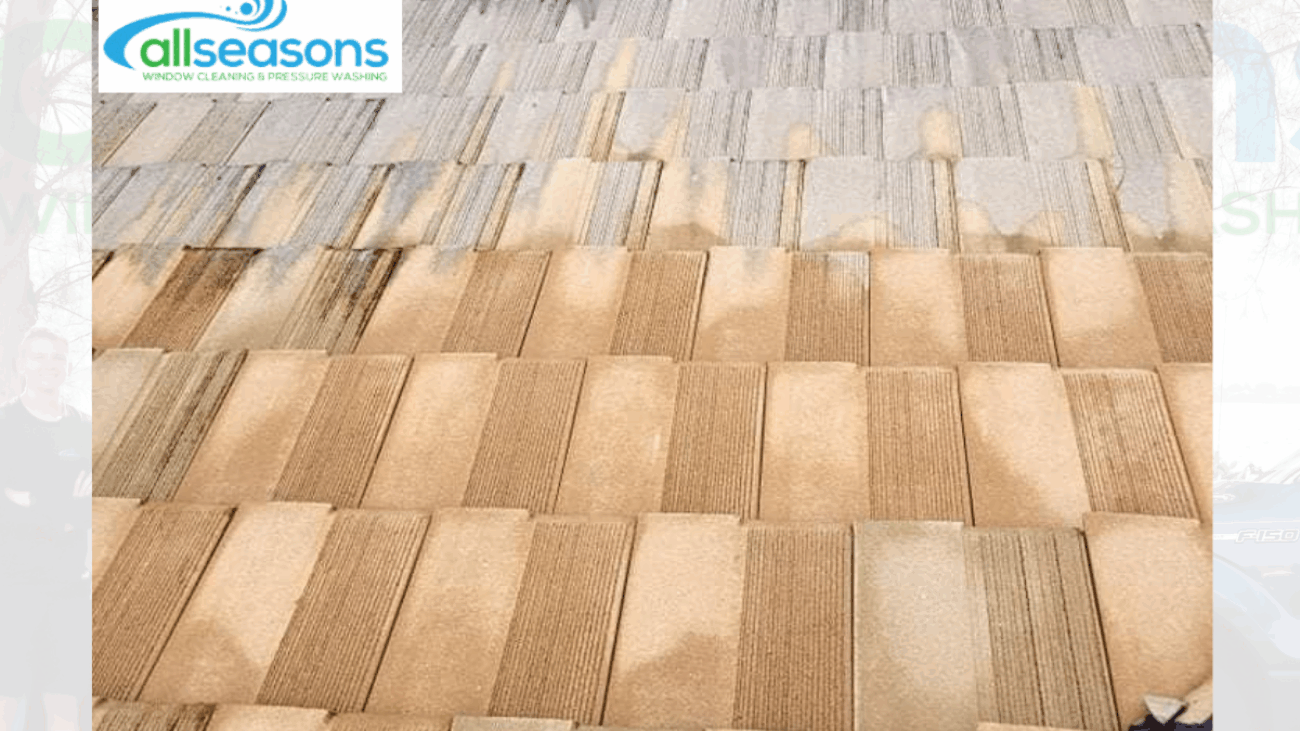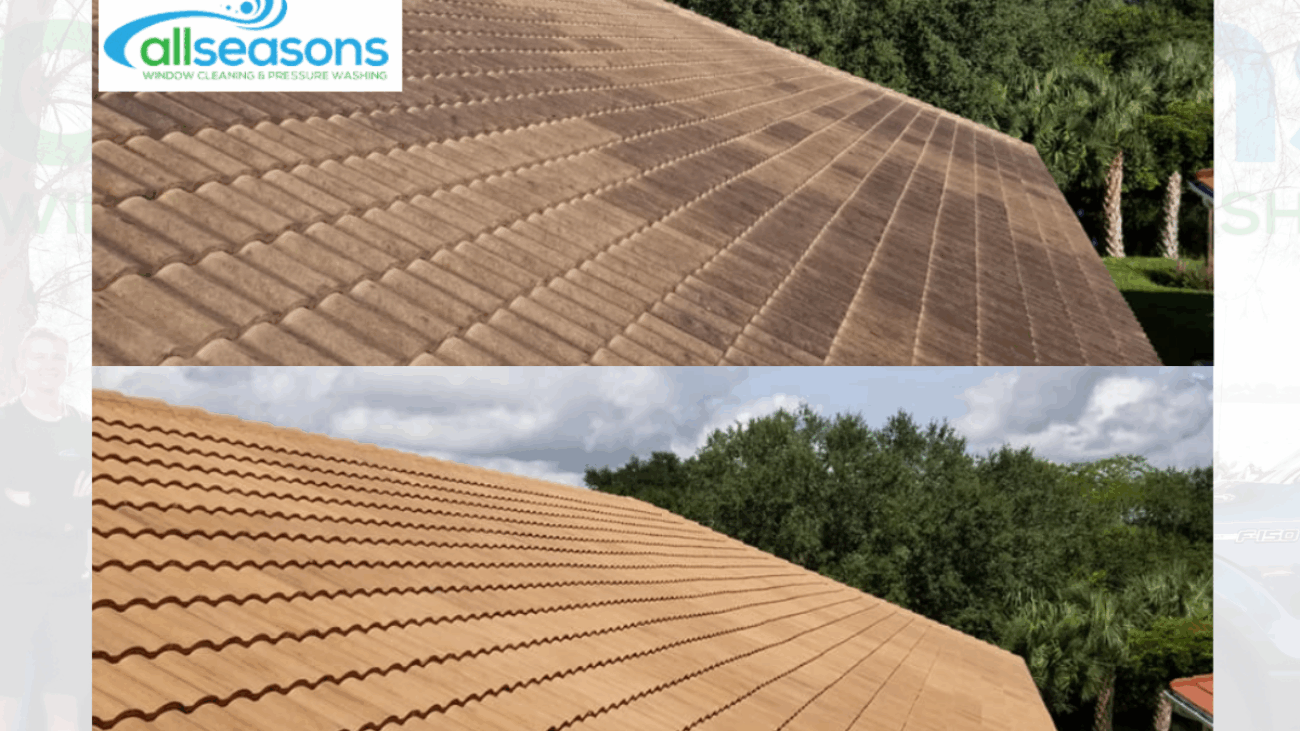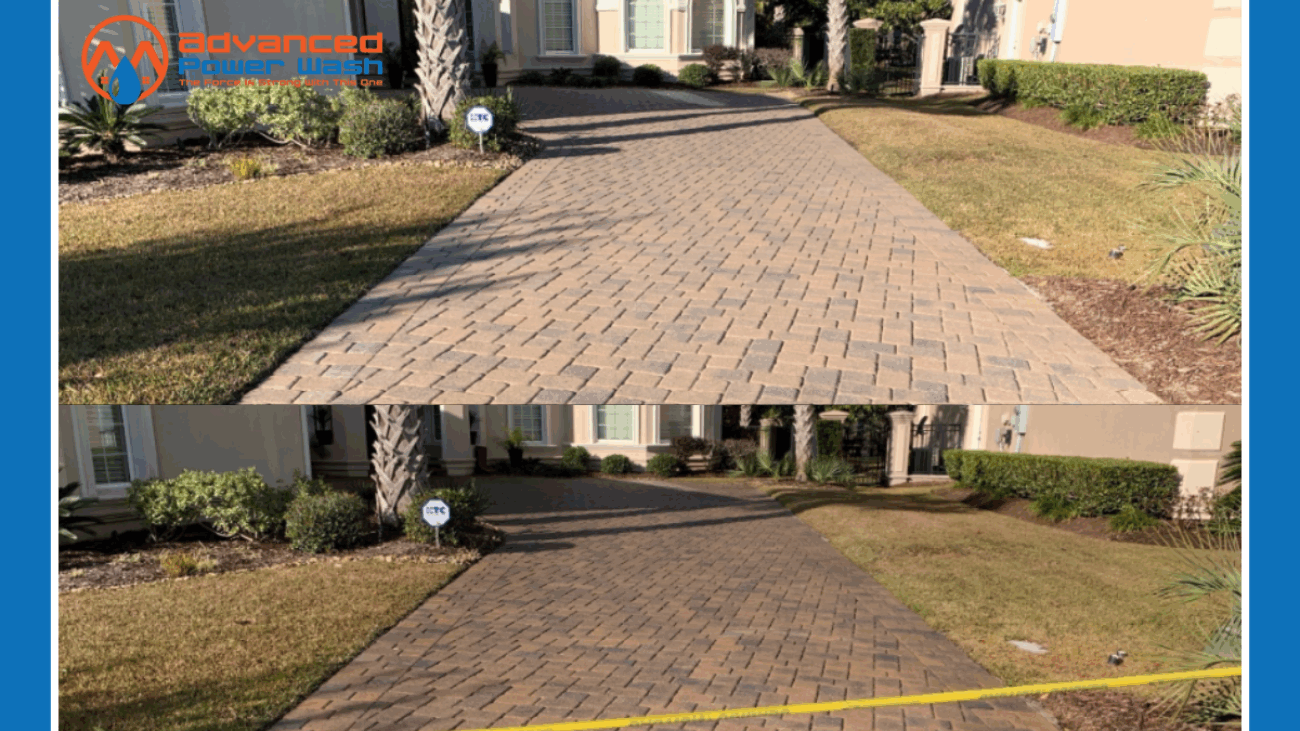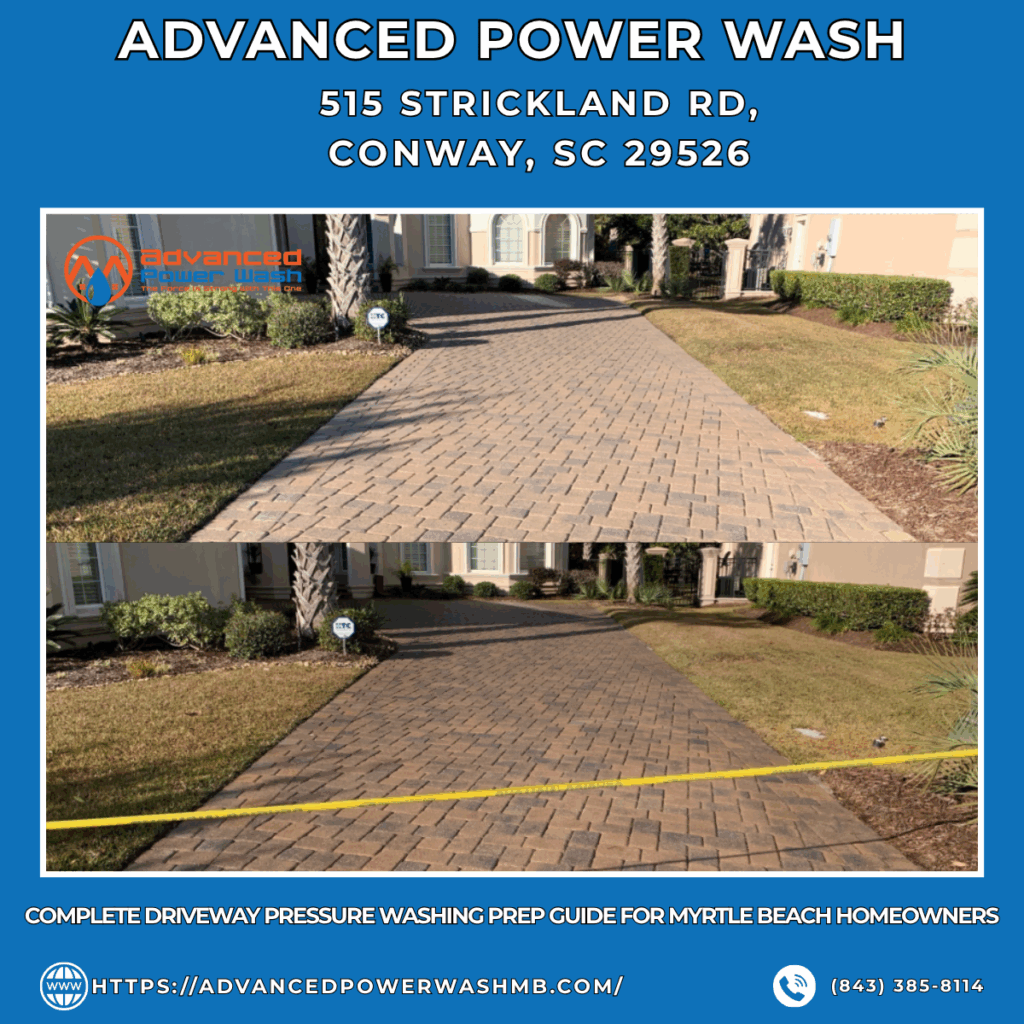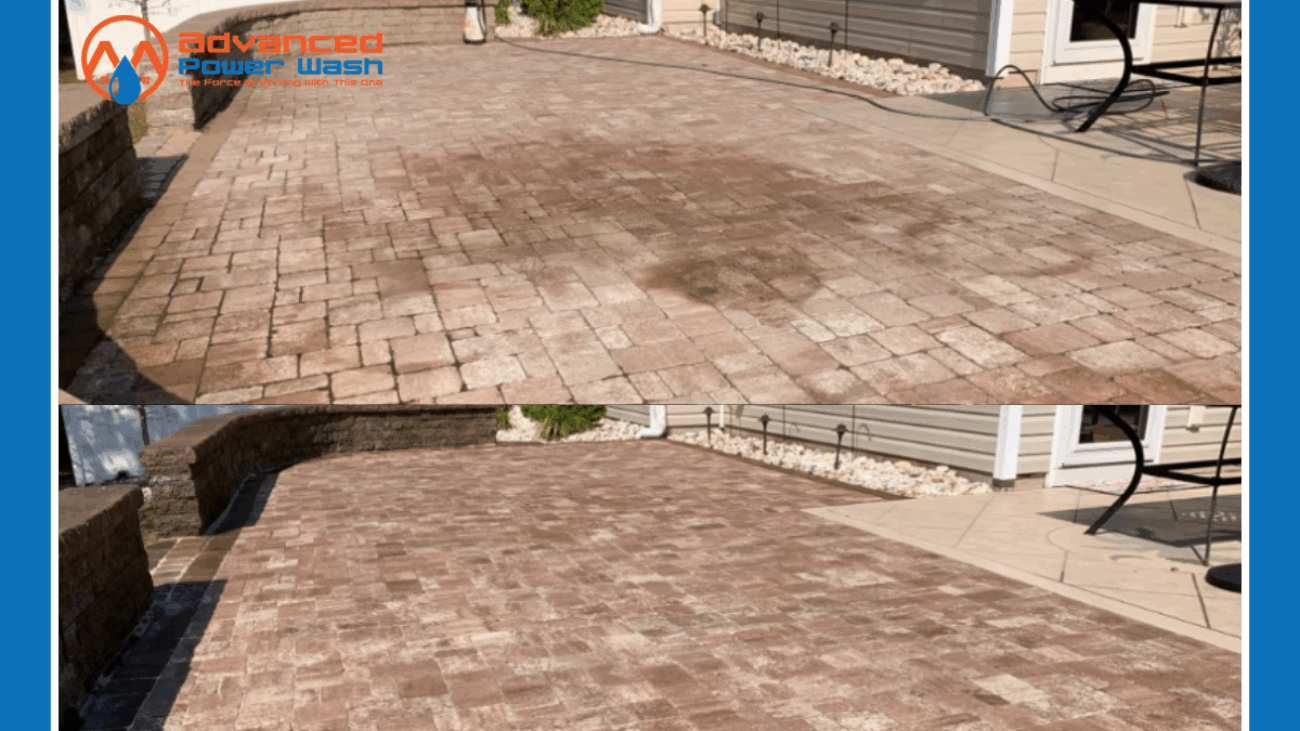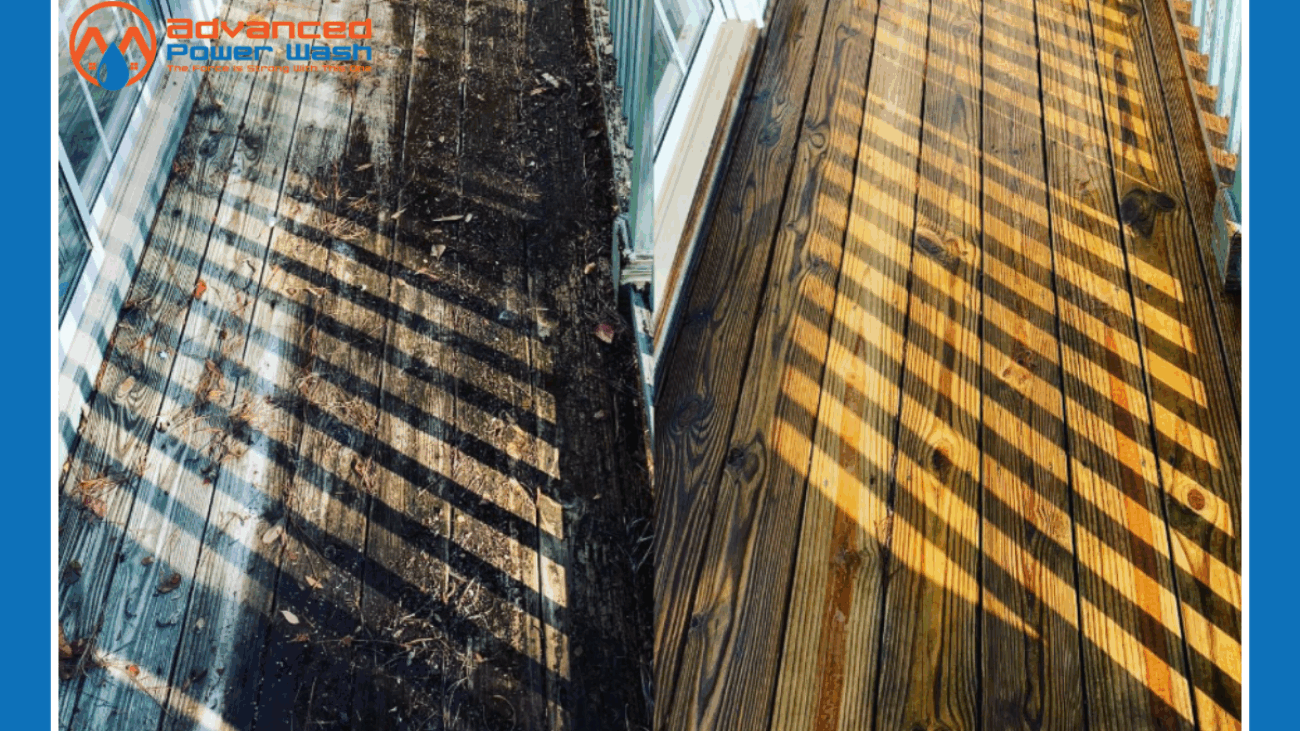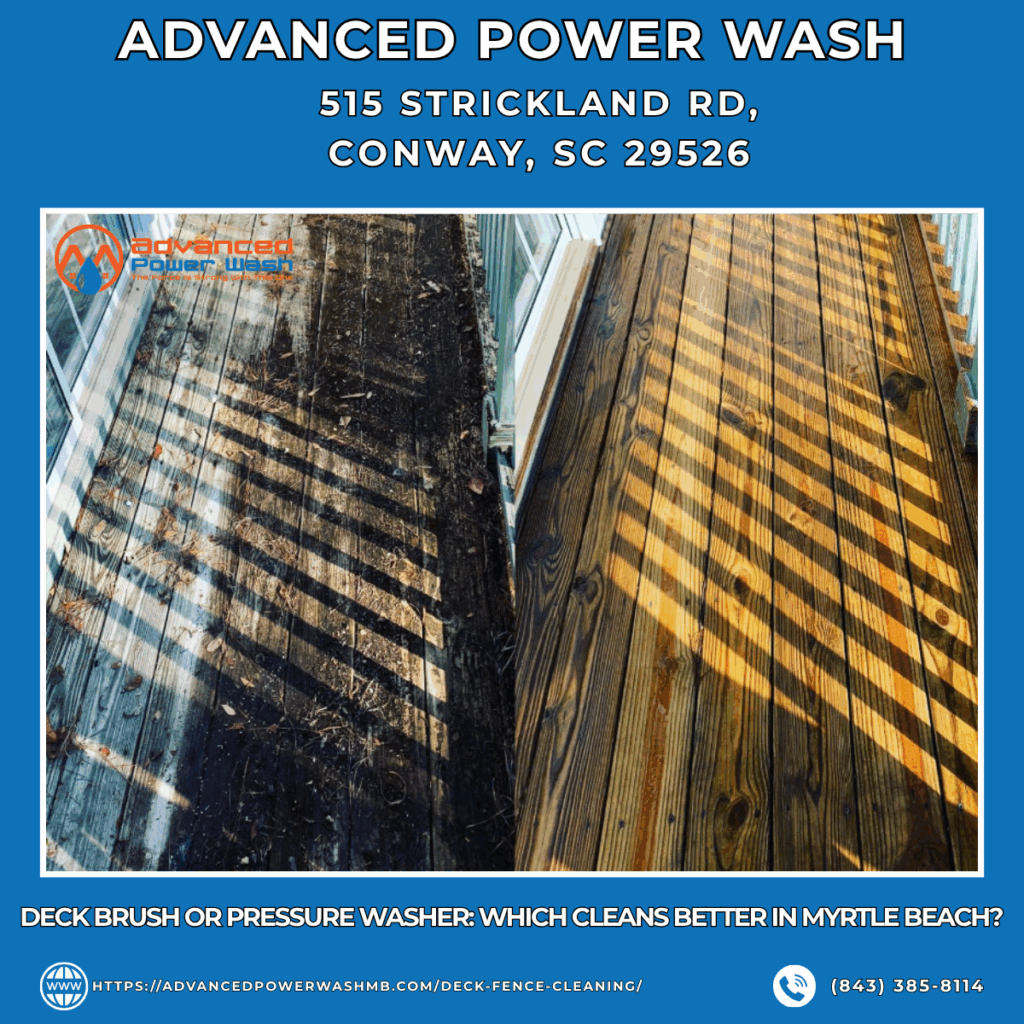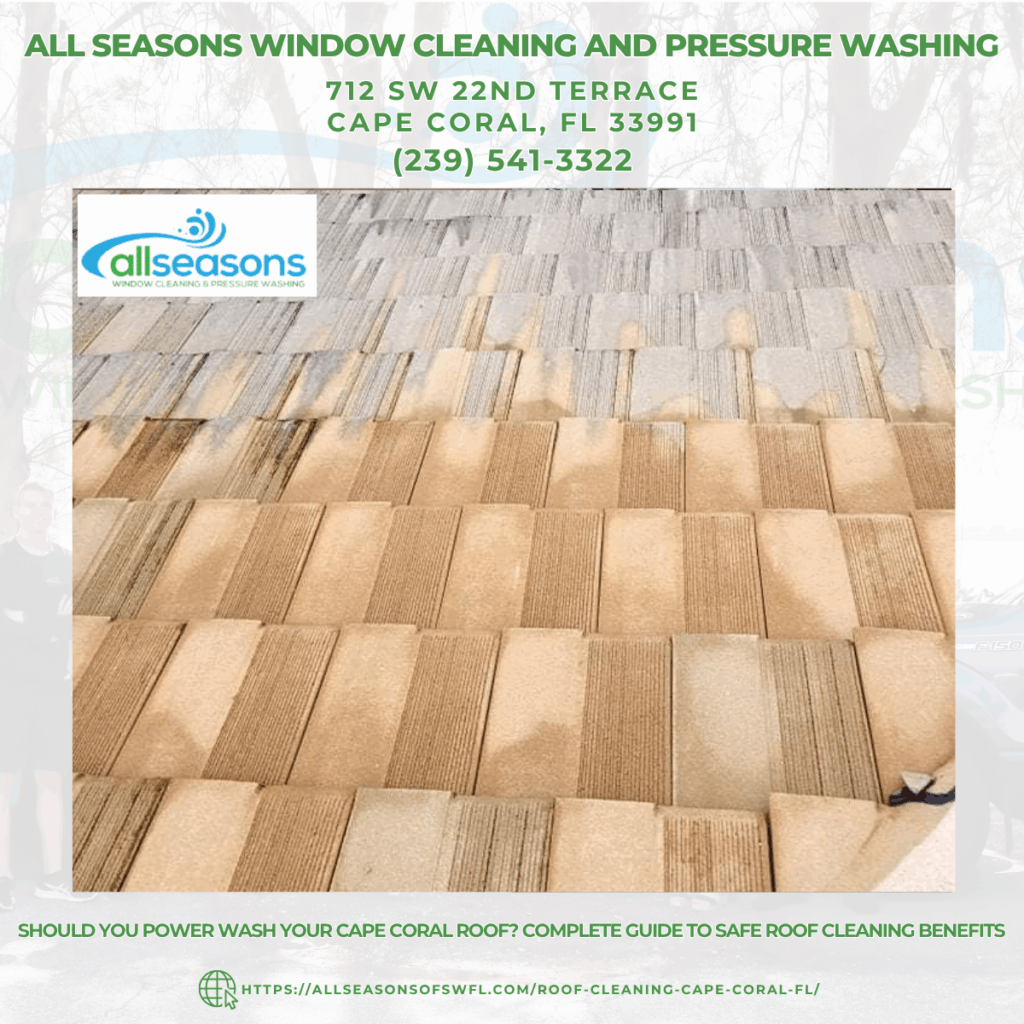
Should You Power Wash Your Cape Coral Roof? Complete Guide To Safe Roof Cleaning Benefits
Why Consider Roof Power Washing in Cape Coral?
Living in Cape Coral means enjoying endless sunshine, beautiful waterways, and a relaxed coastal lifestyle. However, this idyllic setting also subjects your home’s roof to relentless environmental challenges that homeowners in other regions rarely face. The persistent humidity that makes Southwest Florida so lush also creates ideal conditions for destructive biological growth on roofing surfaces.
Your roof endures constant exposure to moisture-laden air, salt spray from nearby Gulf waters, intense UV radiation, and seasonal storms that deposit organic debris. These factors combine to accelerate the growth of algae, particularly the Gloeocapsa magma species that creates those characteristic black streaks on countless Florida roofs. Moss, lichen, and various mold species quickly follow, establishing colonies that actively deteriorate your roofing materials.
Understanding the benefits of roof cleaning in this unique climate is crucial for maintaining your home’s value and structural integrity. The dark stains marring your roof aren’t merely aesthetic problems—they represent active biological processes consuming your roof’s protective components. The organisms producing these discolorations feed on the organic materials in asphalt shingles, breaking down the limestone fillers and protective granules that shield your roof from weather damage. Regular roof maintenance in Florida addresses these threats before they escalate into expensive repairs, making proactive cleaning a wise financial decision for any homeowner.
The Benefits of Roof Power Washing in Cape Coral
Investing in professional roof power washing in Cape Coral delivers multifaceted advantages that protect both your property and your wallet. Understanding these benefits helps homeowners make informed decisions about this important maintenance service.
Enhanced Roof Lifespan and Protection
Perhaps the most compelling reason to schedule regular roof washing is the dramatic extension of your roof’s functional lifespan. Asphalt shingles typically last between fifteen and thirty years, depending on quality and environmental conditions. However, in Cape Coral’s harsh climate, unchecked biological growth can reduce this lifespan by thirty to fifty percent.
Algae and moss don’t simply rest on your roof’s surface—they actively consume the materials designed to protect your home. As these organisms multiply, they retain moisture against your roof surface, creating persistent damp conditions that accelerate rot and deterioration. The dark coloration they produce also absorbs additional heat, raising your roof temperature and further degrading materials designed to reflect solar radiation.
Professional cleaning removes these destructive organisms and the organic debris that feeds them, allowing your roof to function as designed. This preventative approach can add significant years to your roof’s life, delaying the need for costly replacement and maximizing your return on the original roofing investment.
Improved Curb Appeal and Property Value
Your roof accounts for approximately forty percent of your home’s visible exterior, making it a dominant factor in overall curb appeal. A stained, streaked roof creates an immediate negative impression, suggesting neglect and prompting concerns about other potential maintenance issues.
Professional roof washing produces dramatic before-and-after transformations that breathe new life into your property’s appearance. Homeowners consistently report feeling like they have a new roof after professional cleaning, with vibrant colors and clean lines replacing dingy streaks and dark patches.
This aesthetic improvement translates directly into increased property value. Real estate appraisers consider roof condition a critical factor in home valuation, and a clean, well-maintained roof signals quality care throughout the property. Whether you’re planning to sell soon or simply want to maintain your home’s value, roof cleaning offers exceptional return on investment that few other maintenance services can match.
Health and Safety Advantages
The health implications of roof contamination extend beyond exterior surfaces. Mold spores and allergens generated by roof growth become airborne, infiltrating attic spaces and eventually your home’s living areas. These contaminants circulate through your HVAC system, potentially triggering respiratory issues, allergic reactions, and other health problems for your family.
Cape Coral’s humid climate makes these concerns particularly relevant, as mold growth occurs rapidly and persistently without intervention. Professional roof washing eliminates these biological hazards, improving indoor air quality and creating a healthier home environment. For families with members suffering from asthma, allergies, or other respiratory conditions, this benefit alone justifies regular roof maintenance.
Is Roof Power Washing Safe? What You Should Know
Safety concerns about roof cleaning stem from legitimate worries about damage from excessive pressure or harsh chemicals. Understanding the differences between cleaning methods helps homeowners make confident decisions about this essential service.
Soft Washing vs Traditional Power Washing
The terminology surrounding roof cleaning can be confusing, but the distinction between soft washing and traditional power washing is critical. Conventional power washing employs high-pressure water streams powerful enough to remove paint, strip wood, and blast away concrete stains. While effective for many exterior cleaning applications, this aggressive approach is entirely inappropriate for residential roofing materials.
Modern professional roof cleaning services use soft washing technology specifically engineered for delicate surfaces. This method relies on specialized low-pressure application systems that distribute cleaning solutions gently across roof surfaces without causing mechanical damage. The cleaning power comes from biodegradable chemical solutions rather than water pressure, allowing thorough cleaning without risking harm to shingles, tiles, or protective coatings.
How Soft Washing Protects Roof Shingles and Tiles
Soft washing solutions work at the molecular level, breaking down the cellular structure of algae, mold, and bacteria. These treatments penetrate into the porous surfaces of roofing materials, killing organisms deep within the substrate rather than simply washing away surface growth. This thorough approach provides significantly longer-lasting results compared to simple pressure rinsing.
The low-pressure application prevents granule loss on asphalt shingles, a common problem with traditional power washing that accelerates roof aging. For tile roofs, soft washing avoids the risk of cracking or displacing tiles that high-pressure washing can cause. Many professional services also apply post-cleaning treatments that create hostile conditions for future biological growth, extending the clean appearance of your roof for months beyond the initial service.
Choosing the Right Cleaning Methods for Florida Roofs
Florida’s roofing landscape includes diverse materials, each with specific care requirements. Asphalt shingles dominate residential applications, but Cape Coral homes also feature clay and concrete tiles, metal roofing, and various flat membrane systems. Experienced roof cleaning professionals assess your specific roofing type, age, and current condition before selecting appropriate cleaning protocols.
This customized approach ensures optimal results while protecting your roof’s integrity and any existing warranty coverage. Reputable companies maintain ongoing training on the latest cleaning technologies and manufacturer recommendations, ensuring their methods align with industry best practices and don’t void roofing warranties through improper maintenance.
When and How Often Should You Power Wash Your Roof in Cape Coral?
Establishing an appropriate cleaning schedule maximizes the benefits of roof maintenance while managing costs effectively. Several factors influence the ideal frequency for your specific situation.
Cape Coral’s climate allows roof cleaning year-round, though many homeowners prefer scheduling during the slightly drier winter and spring months. The best time to power wash roof Cape Coral properties often coincides with lower humidity levels that facilitate faster drying and reduce immediate regrowth potential.
For roof cleaning frequency Florida homeowners should follow, most experts recommend service every twelve to eighteen months for typical Cape Coral properties. However, individual circumstances significantly impact this general guideline. Homes surrounded by oak trees or other overhanging vegetation require more frequent cleaning due to constant debris accumulation and persistent shade that promotes biological growth. Properties in open, sunny locations with good airflow may maintain acceptable conditions for two years between professional services.
Monitor your roof’s appearance throughout the year, watching for early signs of contamination like light discoloration, small dark spots, or green tinting. Addressing these issues promptly prevents minor problems from developing into extensive growth that requires more aggressive treatment and costs more to remediate.
How to Choose a Roof Power Washing Service in Cape Coral
The quality of your roof cleaning experience depends heavily on choosing the right service provider. Several key factors separate professional operations from inexperienced or unethical competitors.
Start by verifying proper licensing and comprehensive insurance coverage. Legitimate professional roof power washing Cape Coral companies maintain current state and local licenses demonstrating their legal authority to operate. Equally important is insurance protection, including general liability coverage and workers’ compensation policies. This insurance protects you from financial liability if workers are injured on your property or if cleaning activities cause unintended damage.
Experience with Florida roofing systems is essential. Cleaning roofs in Cape Coral requires specialized knowledge of regional challenges like salt air exposure, specific algae strains prevalent in Southwest Florida, and proper treatment of the roofing materials popular in local construction. Ask potential contractors about their experience with your specific roof type and request references from recent clients with similar properties.
Investigate their cleaning methods and products thoroughly. Quality providers use eco-friendly roof cleaning FL solutions that effectively eliminate biological growth without harming surrounding landscaping, pets, or family members. They should willingly explain their soft washing process, the specific products they use, and the expected results.
Be cautious about pricing that seems too good to be true. Professional roof cleaning requires significant investment in specialized equipment, quality cleaning solutions, proper safety gear, and trained personnel. Companies offering substantially lower prices than competitors likely cut corners in ways that compromise either results or safety. Focus on value rather than simply choosing the lowest bid.
FAQs About Roof Power Washing in Cape Coral
Is power washing safe for all types of roofs?
Modern soft washing techniques are safe for virtually all residential roofing materials when performed by trained professionals. Traditional high-pressure power washing can damage many roof types, but the low-pressure methods used by reputable roof cleaning services protect asphalt shingles, clay tiles, concrete tiles, metal roofing, and other common materials. Always choose experienced professionals who understand your specific roofing system’s requirements.
How much does roof power washing cost in Cape Coral?
Average roof cleaning costs in Cape Coral range from three hundred to eight hundred dollars for typical single-family homes. Exact pricing depends on roof size measured in square feet, roof pitch and accessibility, overall condition and severity of contamination, and architectural complexity with multiple levels or steep slopes. Most professional services offer free estimates after inspecting your property.
Can I power wash my roof myself?
DIY roof cleaning poses significant safety risks and high potential for costly damage. Working at heights requires proper safety equipment and training that most homeowners lack. Additionally, selecting appropriate cleaning solutions and application methods requires expertise that comes only through professional training and experience. The modest cost of professional service provides excellent value when weighed against injury risk and potential roof damage from improper DIY attempts.
What is the difference between soft washing and power washing?
Soft washing uses low-pressure application (typically under 500 PSI) combined with specialized chemical cleaners that break down biological growth at the molecular level. Traditional power washing relies on high-pressure water streams (2,000-3,000 PSI or higher) to mechanically blast away contaminants. For roofs, soft washing is significantly safer, more effective at preventing regrowth, and provides longer-lasting results without risking material damage.
How long does roof cleaning last in the Florida climate?
Professional roof cleaning typically maintains excellent appearance for twelve to twenty-four months in Cape Coral’s climate. Duration depends on factors like sun exposure and shading from trees, proximity to water and salt air exposure, local humidity and rainfall patterns, and whether protective treatments were applied after cleaning. Properties with heavy tree coverage may require annual service, while open, sunny locations often stay clean longer.
Conclusion and Call to Action
For Cape Coral homeowners wondering whether roof power washing is worthwhile, the evidence overwhelmingly supports regular professional cleaning as a smart investment. The combination of extended roof lifespan, preserved property value, enhanced aesthetic appeal, and improved home health creates compelling reasons to make roof maintenance a priority.
Florida’s demanding climate makes roof care essential rather than optional. The relatively modest cost of professional cleaning delivers substantial returns by preventing expensive premature roof replacement, maintaining your home’s market value, and creating a healthier living environment for your family. By selecting experienced professionals who use safe soft washing methods and environmentally responsible products, you protect your investment while ensuring optimal results.
Don’t wait until severe staining or structural damage forces your hand. Schedule a professional roof inspection and cleaning service today to restore your roof’s appearance and maximize its functional lifespan. Your home represents a significant investment that deserves proper protection, and your roof is the critical first defense against Florida’s challenging weather conditions. Take proactive steps now to preserve your property’s value and beauty for years to come.
